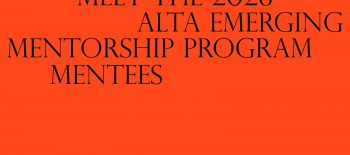This event is a part of Lem Centennial celebration.
A six part series of video readings of the work of Stanisław Lem by Danusia Trevino, Jim Fletcher, Kuba Falk and Andy Maillet. The series is directed by former Wooster Group filmmaker Zbigniew Bzymek and features sound design and music by Andy Maillet and 3D art by Marcin Kosakowski. The series is a collaboration between artists based in New York and Warsaw and funded by the Polish Cultural Institute in New York.

Episode 1 “Bitic Lit”
Read by Danusia Trevino and Jim Fletcher
Directed and edited by Zbigniew Bzymek
Music by Andy Maillet
3D Art by Marcin Kosakowski
Excerpted from Lem’s 1973 Imaginary Magnitude, “Bitic Lit” is a discussion of various religious ideas from the POV of an AI.

Episode 2 “Golem XIV”
Read by Danusia Trevino and Jim Fletcher
Directed and edited by Zbigniew Bzymek
Music by Andy Maillet
3D Art by Marcin Kosakowski
Another excerpt from Lem’s Imaginary Magnitude (1973), “Golem XIV” discusses why the world’s most intelligent computer was created and how to approach it in a conversation.

Episode 3 “Eruntics”
Read by Kuba Falk
Directed and edited by Zbigniew Bzymek
Music by Andy Maillet
3D Art by Marcin Kosakowski
Additional reading by Andy Maillet
In the introduction to a book that doesn’t exist yet (collected in Imaginary Magnitude), Lem describes an eccentric amateur who manages to teach bacterial strains to communicate via Morse code. Inadvertently, they develop an ability to predict the future.

Episode 4 “Symmetriads”
Read by Danusia Trevino and Jim Fletcher
Directed and edited by Zbigniew Bzymek
Music by Andy Maillet
2D Animations by Zbigniew Bzymek
Additional reading by Andy Maillet
In this excerpt from Solaris (1961),we learn about “symmetriads”: mirrored formations of organic architecture observed to temporarily emerge from the surface of the sentient ocean. Although scientists have attempted to describe and understand such phenomena with recourse to imagery and metaphor, such human-scale illustrations consistently fall short.

Episode 5 “Landings”
Read by Danusia Trevino
Directed and edited by Zbigniew Bzymek
Music by Andy Maillet
3D Art by Marcin Kosakowski
Additional reading by Zbigniew Bzymek
This episode presents two of Lem’s memorable spaceship landing scenes, one from the opening of The Invincible (1964) and the other from the very end of Solaris (1961). Each explores a different aspect of humanity’s contact with the unknown.

Episode 6 “Cybernethics”
Read by Andy Maillet
Directed and edited by Zbigniew Bzymek
Music by Andy Maillet
3D Art by Marcin Kosakowski
In this selection from Lem’s 1971 collection of short stories following the cosmic excursions of Ijon Tichy (subtitled “The Washing Machine Tragedy”), a rogue robotics engineer pushes the legal system to its limits by establishing an extraterrestrial identity that is neither human, machine or planetary.
Director’s statement
For “Lem: Mimoid Readings”, I invited a mix of New York and Warsaw – based performers to read passages selected by myself and Andy Maillet from the work of Stanisław Lem. Lem was a writer of extraordinary intelligence and imagination whose philosophically-infused science fiction examined humanity at the extremes of its technological and cosmic extensions. Our selection focuses on the fascinating speculations on linguistics, technology and religion found in Lem’s shorter works, but also includes descriptive and scenic passages from Lem’s popular novels Solaris and The Invincible. In this project, we were also interested in choosing material that would engage the digital space of internet video and internet video chat. We were interested less in proving Lem’s accuracy as a prognosticator and more in showing an interesting dissonance between his oddly enchanting sense of future possibility and our more pressing futural stasis. We developed a process in which I would ask the performers to send fragments that I would then compile as “logs” or video letters to each other. As a result, some of the video dialogues have a narrativizing quality in which a relationship between alternative realities is palpable.
Bios

Zbigniew Bzymek is a filmmaker, theatre artist, animator and educator. After graduating from The Polish National Film School directing department, his diploma film Suddenly Forever won the grand prix du jury at the prestigious Rencontres Internationale Henri Langlois festival in Poitiers in 2008. As a theatre artist, Bzymek has created video projections for seven of Krystian Lupa’s productions and for 14 years was a filmmaker and performer with The Wooster Group in New York. Films shot, directed by Bzymek have screened at Berlinale, New Horizons, Belfort, Sundance, Locarno, and BAM cinefest. He was written up in the New York edition of La Génération “Do It Yourself” in Cahiers du Cinéma, and has been the recipient or co-recipient of numerous fellowships in the United States, such as the Gregory Millard Fellowship in Film from The New York Foundation for The Arts and The MAP Fund. In 2020, he directed “Concert of Question Marks”, a “socio-musical” survey with demographic questions and musical performances by Andy Maillet and Mary Komasa on the main stage of STUDIO teatrgaleria in Warsaw. He was the Art Director of VFX on Brodka’s “Game Change,” which won Best Art Direction at the Berlin Music Video Awards 2021.

Andy Maillet is a composer, sound designer and performer based in New York and Warsaw. Credits include: The Wooster Group’s A Pink Chair (In Place of a Fake Antique) (video programming, performer); Pragmatists, or Use Me with Zbigniew Bzymek (music, performer, sound designer); Nowy Teatr/Dream Adoption Society’s Białoszewski/Ginsberg at the Performing Garage (sound designer); Alessandro Magania’s Radio Delirio (sound designer) and the Yale Dramatic Association’s Summer and Smoke (composer). Andy writes and performs fragmentary art songs under the moniker “Amai”, and has appeared in concert at Dixon Place, The Bitter End, 54 Below, JACK, Troost, and STUDIO teatrgaleria in Warsaw (“Concert of Question Marks”). Andy holds a B.A. in Music and Humanities from Yale University.
Lead image: Stanisław Lem, Kraków, 1971, photo: Jakub Grelowski/PAP



